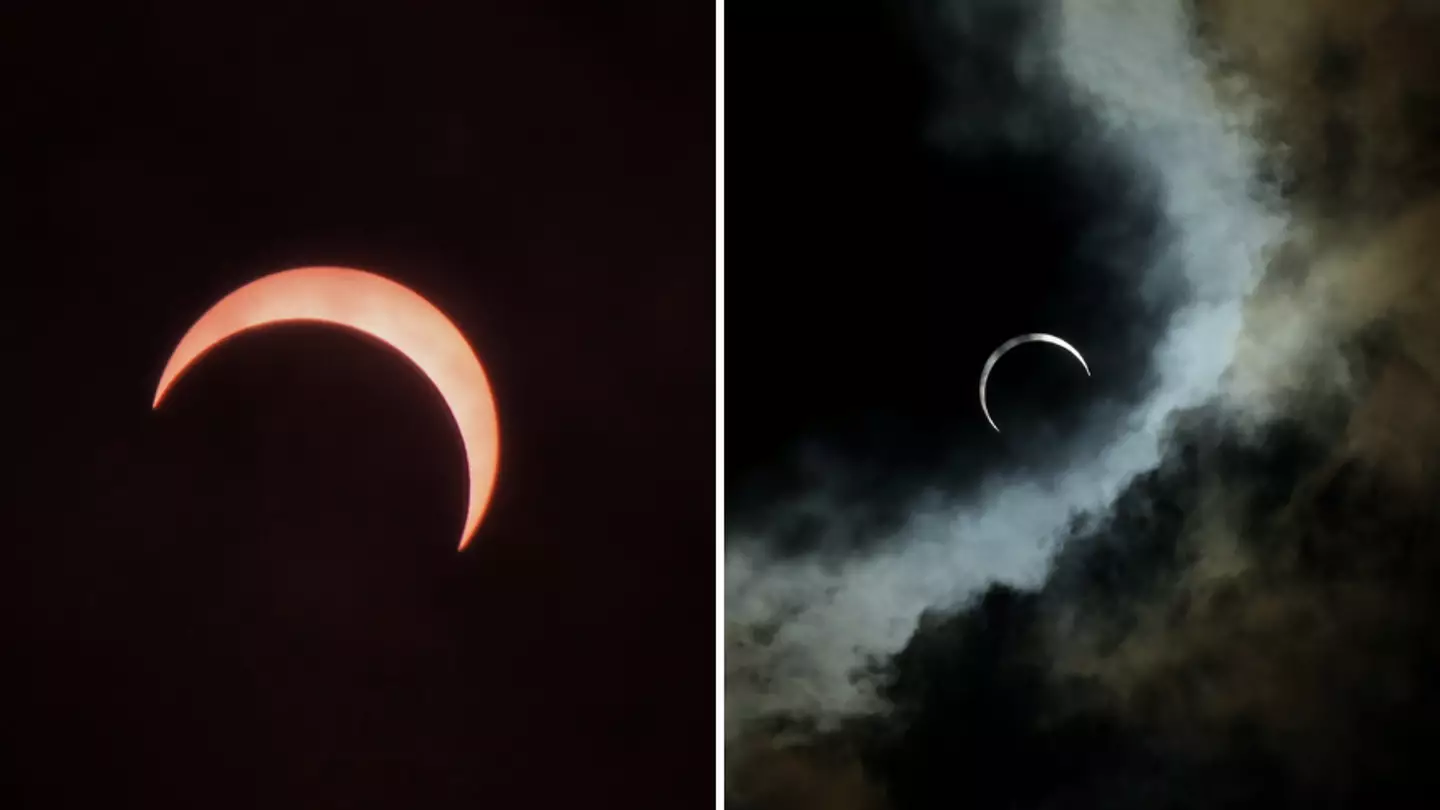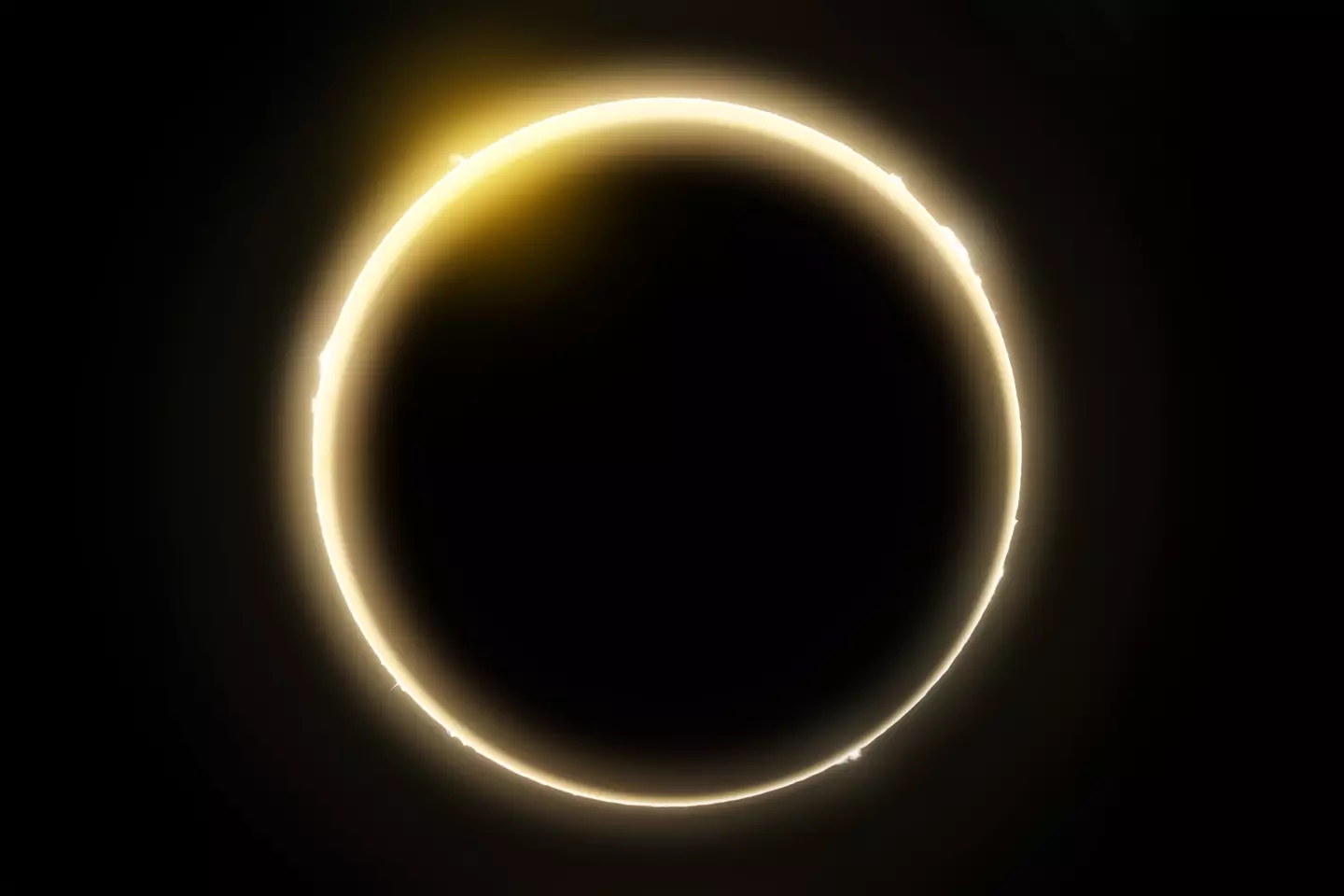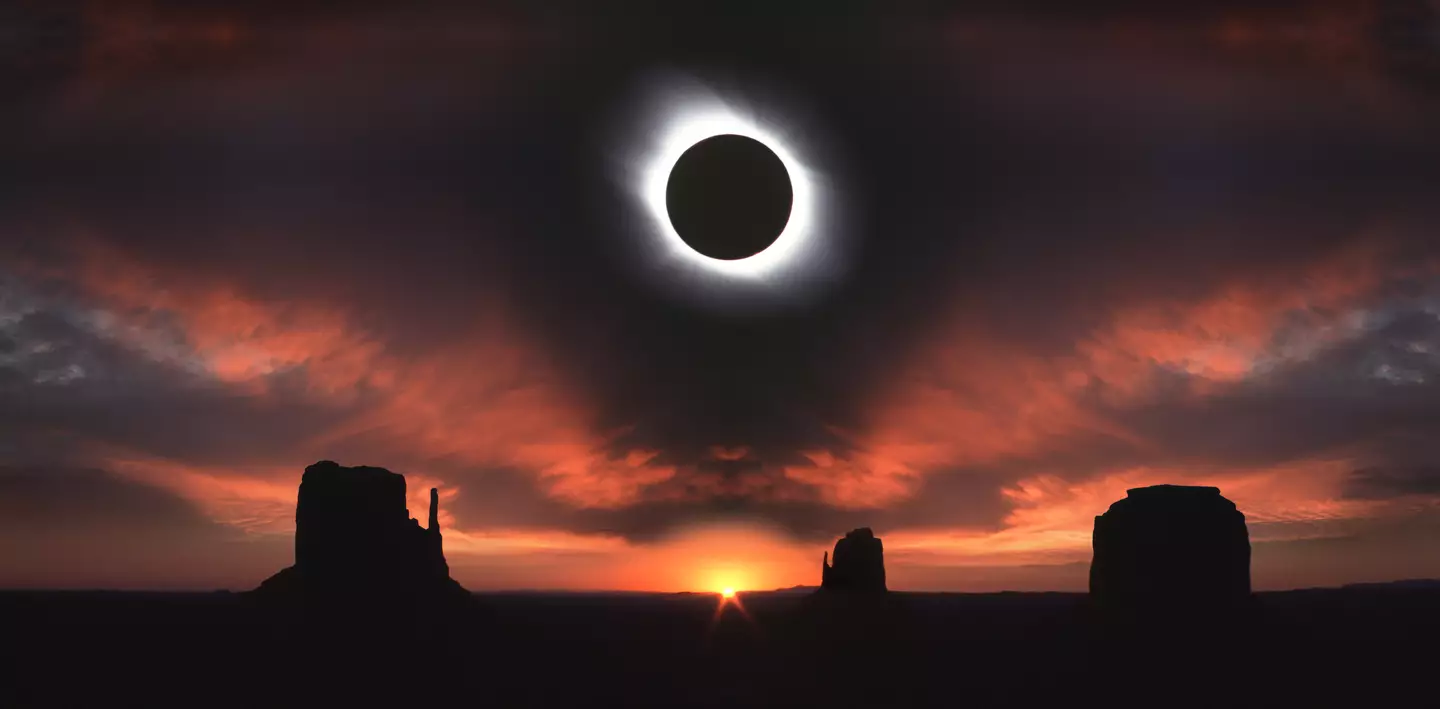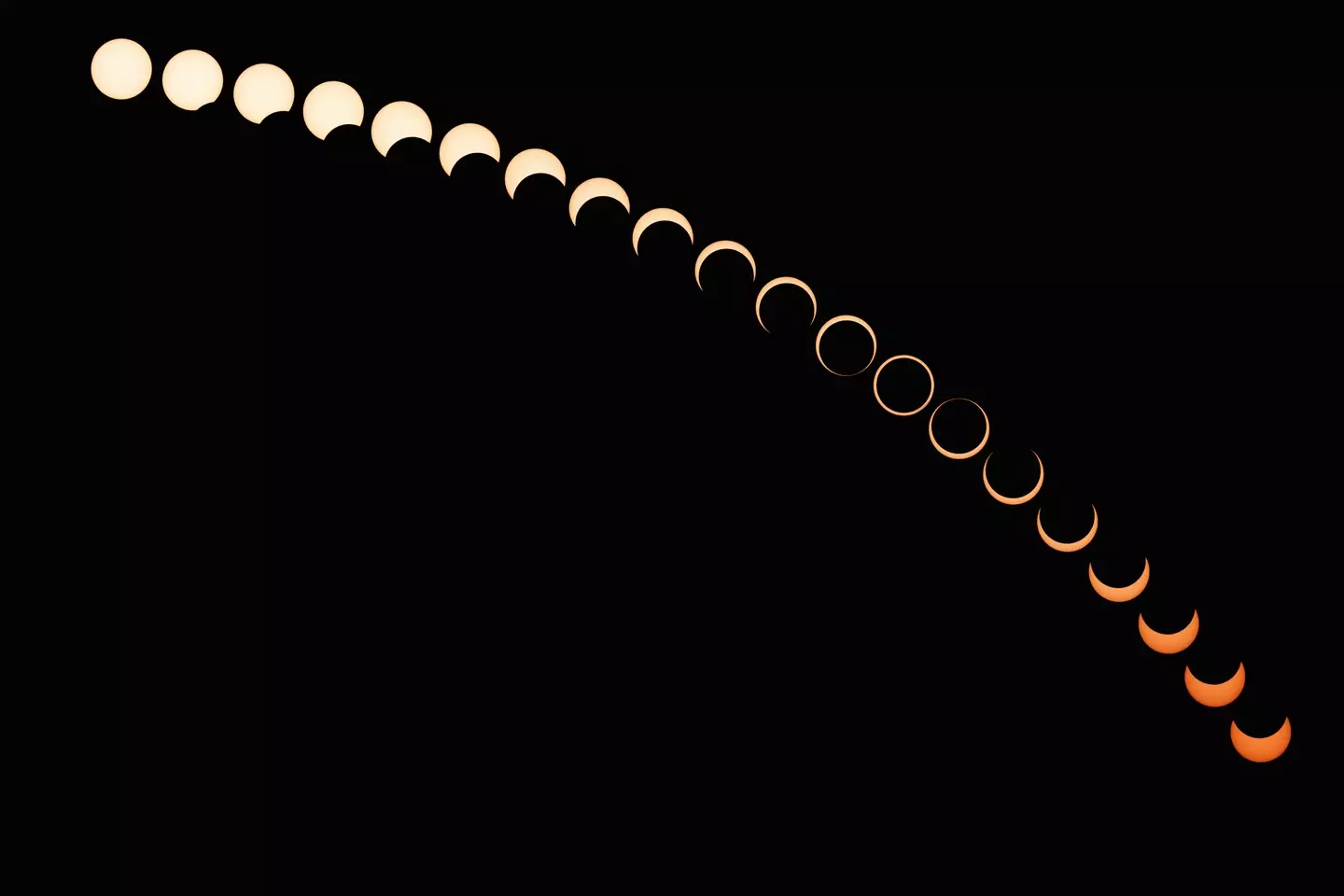
An annual astrological phenomenon - which will be visible to the naked eye - is just around the corner, and stargazers are eager to hear how they'll best be able to get a look-in.
Known as a 'ring of fire' solar eclipse, the exciting event will be visible in a matter of days, but only to a select few.
For those out of the loop with what October's solar spectacle means, however, worry not - we're here to give you all the need to knows.

What is the 'ring of fire' solar eclipse?
Sorry to drag you all back to Year 10 physics, but it's probably easier to start all the way from the beginning.
Advert
A solar eclipse describes the moment when the Sun, the Moon, and planet Earth all line up perfectly.
When this happens, the Moon casts a shadow which totally blocks any view of the Sun for a hot minute.
This leaves a circular ring in the sky where the Sun is trying desperately to poke through and - if I may say - looks pretty darn cool.
According to Carolyn Summers - who works at the Houston Museum of Natural Science and spoke to the New York Post this week - the halo-like ring occurs because 'the Moon is just not quite big enough to cover the Sun'.
These special events can happen between two and five times a year.

When is it happening?
When we say 'around the corner', we mean it.
The event - which is actually the final solar spectacle of the year - will actually be taking place on Wednesday 2 October.
Who'll be able to see it?
As we say, not everyone in the world will get the chance to feast their eyes on this ethereal phenomenon.
And actually, if you're reading this from the UK, I'd try not to get too excited...
That's because the eclipse will mostly be visible if you're looking up from the waters of the Pacific Ocean.
So, those inhabiting the lives of Easter Island (also known as Rapa Nui), or the tips of either Argentina or Chile, congrats - you'll get the best view.
For those reading from the likes of Brazil, Paraguay, Uruguay and Hawaii, however, try not to worry, you'll at least be able to join in on half the fun.
That's because the angle you'll be looking up from will give you a partial solar eclipse, when the Sun appears like a crescent - which is also very cool.

How will you be able to see it?
Looking directly at the Sun can - obviously - cause severe damage to your eyes, even when most of it is covered by the Moon.
It is essential, therefore, to protect your eyes when looking at this spectacle, using solar glasses which will block out ultraviolet rays, as they comply with ISO 12312-2 standards
Normal sunglasses and binoculars simply won't do the job, and could actually end up doing more harm that good.
If you won't be able to get access to solar glasses in time for Wednesday's event, however, you'll have to watch the eclipse indirectly.
This could either consist of making a pinhole projector using household items.